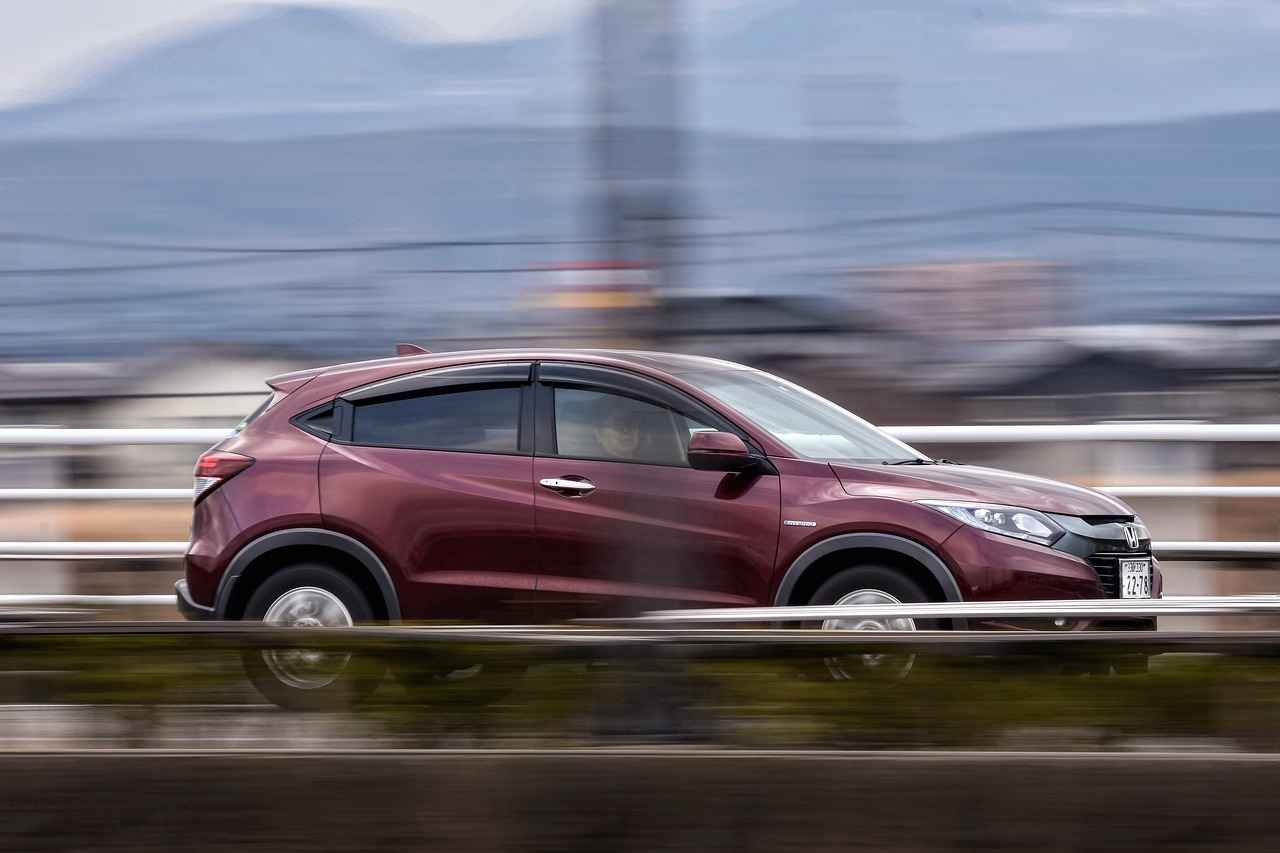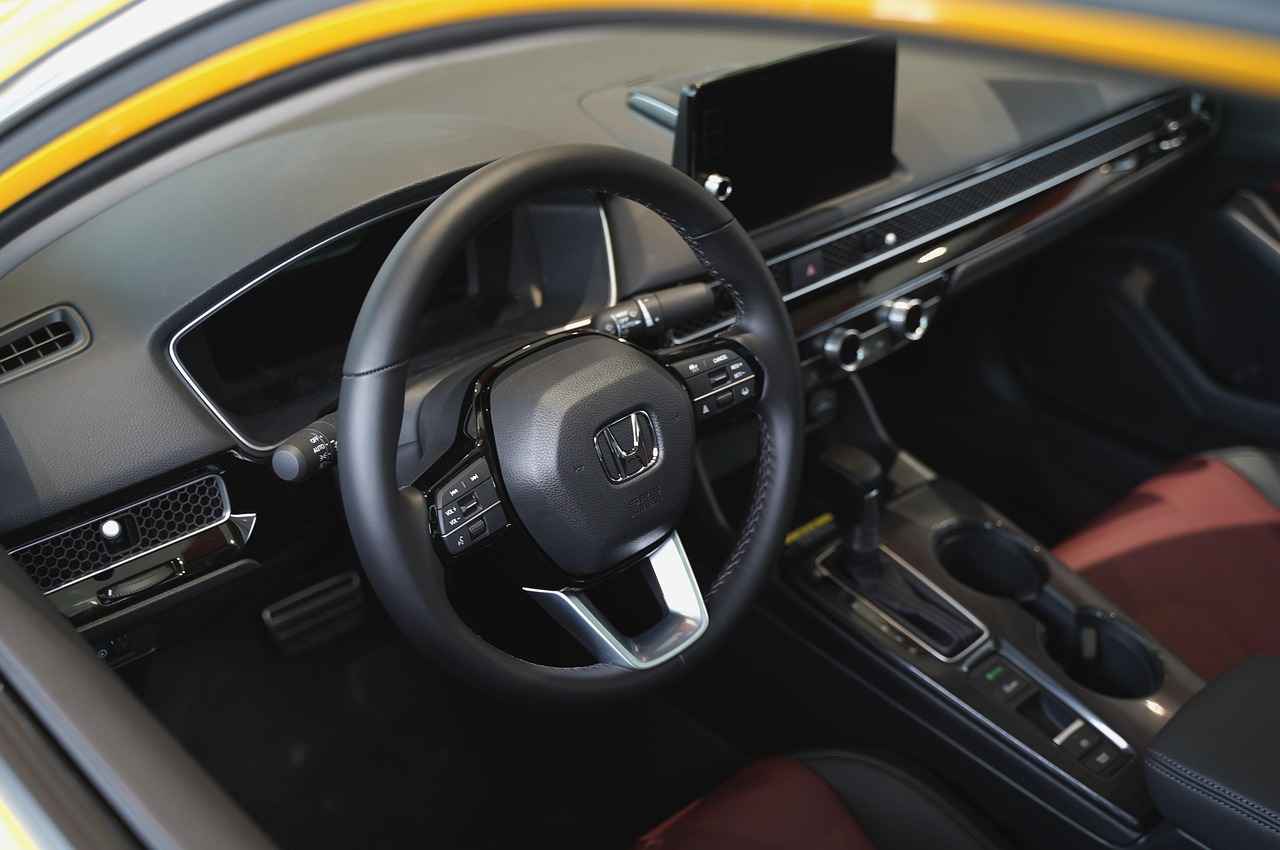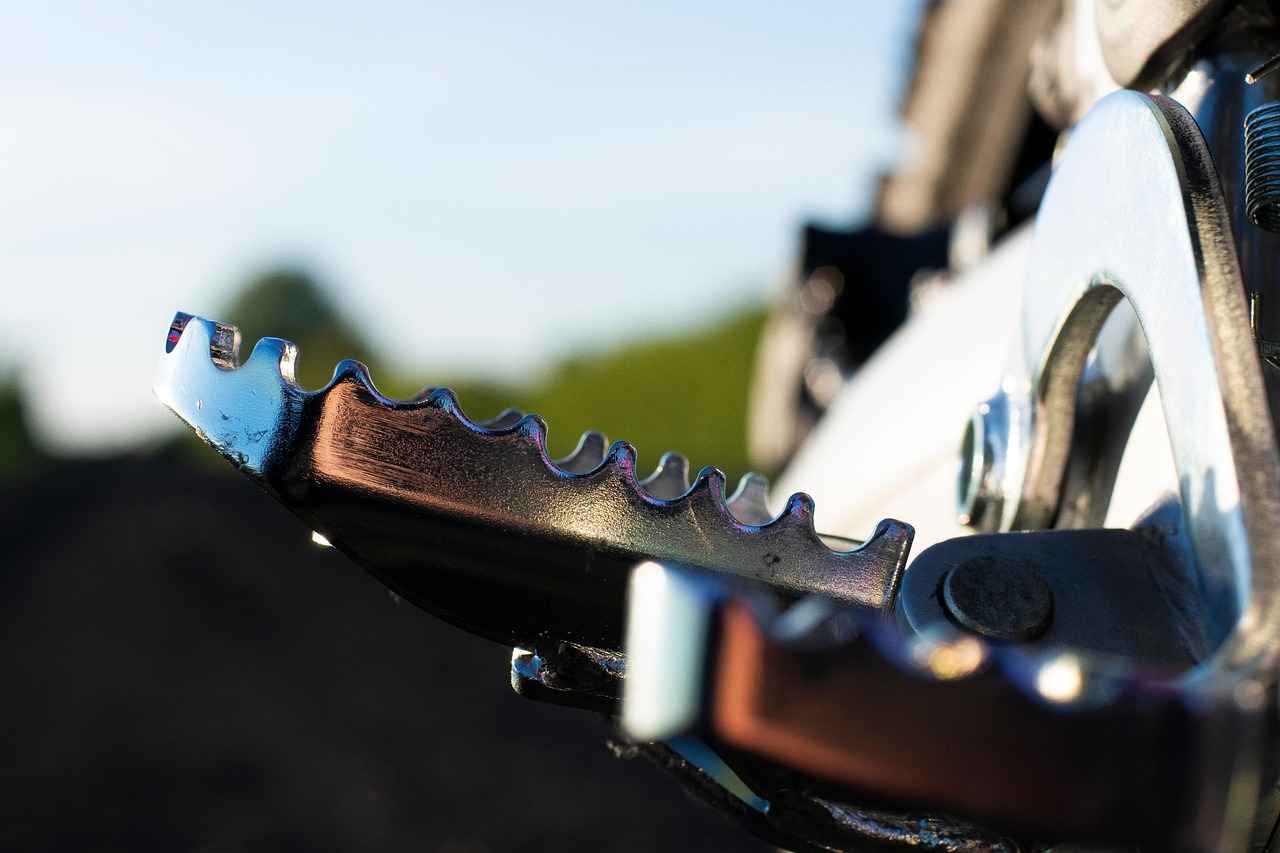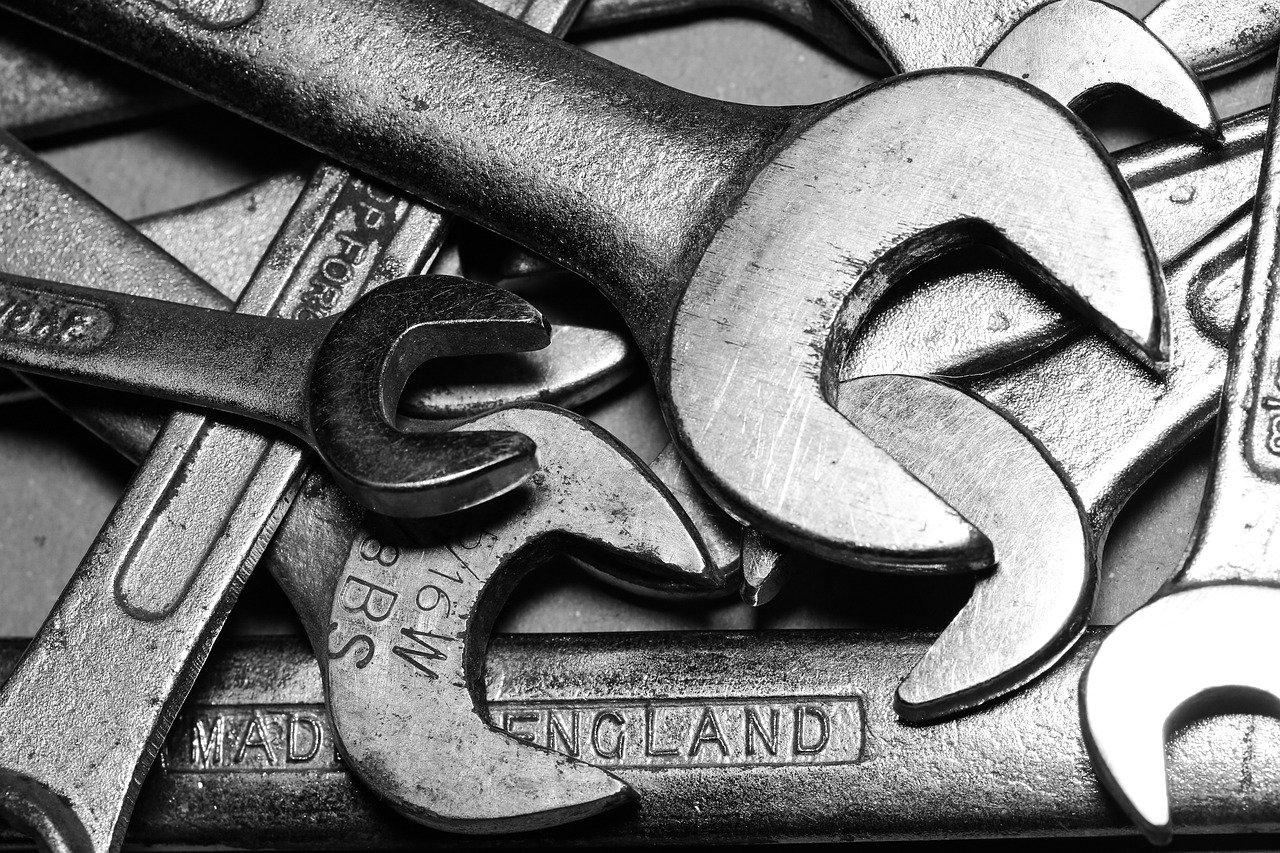This article delves into the reliability of the Honda Accord, a vehicle renowned for its performance and customer satisfaction. We will examine various aspects, including consumer reviews and expert opinions, to assist potential buyers in making an informed decision.
What Makes the Honda Accord a Reliable Choice?
The Honda Accord has built a solid reputation for reliability, largely due to its exceptional engineering and quality manufacturing. Many drivers seek vehicles that offer longevity, and the Accord consistently meets these expectations with its impressive track record.
Key Features Contributing to Honda Accord’s Reliability
- Robust Engine Options: The Honda Accord features a range of engines that are both powerful and efficient, designed for durability.
- Advanced Safety Systems: Equipped with state-of-the-art safety technologies, the Accord prioritizes driver and passenger safety.
- High-Quality Materials: The interior and exterior materials used in the Accord resist wear and tear, contributing to its long-lasting appeal.
Engine Performance and Longevity
Honda Accord engines are celebrated for their durability and efficiency. Many owners report that their vehicles exceed 200,000 miles with proper maintenance, further solidifying the Accord’s reputation for reliability.
Regular Maintenance Schedule
To maximize the lifespan of the Honda Accord, adhering to a regular maintenance schedule is essential. This includes timely oil changes, tire rotations, and brake inspections, which help maintain optimal performance.
Common Engine Issues to Watch For
While the Accord is generally reliable, some models may encounter specific engine issues, such as oil consumption problems. Owners should monitor these concerns for early detection and resolution.
Safety Ratings and Features
The Honda Accord consistently earns high safety ratings, thanks to its comprehensive suite of safety features. These include:
- Adaptive cruise control
- Lane-keeping assist
- Collision mitigation braking systems
How Does the Honda Accord Compare to Competitors?
When pitted against competitors like the Toyota Camry and Nissan Altima, the Honda Accord often emerges as a leader in terms of reliability, resale value, and overall performance.
Consumer Satisfaction Ratings
Consumer satisfaction ratings demonstrate how well the Honda Accord performs compared to its rivals. Many drivers appreciate its reliability and overall driving experience, contributing to its strong reputation.
Resale Value Insights
The Honda Accord tends to retain its value better than many other sedans, reflecting consumer trust in its reliability and performance, which can be advantageous for future resale.
Real-World Reliability: Owner Experiences
Owner testimonials provide important insights into the real-world reliability of the Honda Accord. Many owners commend the vehicle for:
- Smooth ride quality
- Fuel efficiency
- Low maintenance costs
Reported Issues and Concerns
Despite the overall reliability, some owners have reported issues with specific models, such as transmission problems. This highlights the importance of researching model years before making a purchase.
What Warranty Coverage Does the Honda Accord Offer?
The Honda Accord comes with a competitive warranty package, providing peace of mind for buyers. This reflects the manufacturer’s confidence in the vehicle’s reliability.
Basic Warranty Details
Honda offers a standard limited warranty covering the Accord for three years or 36,000 miles, ensuring protection against unexpected repairs during the initial ownership period.
Powertrain Warranty Insights
The powertrain warranty extends to five years or 60,000 miles, covering major components and underscoring the Accord’s reliability for long-term ownership.

What Makes the Honda Accord a Reliable Choice?
The Honda Accord has long been celebrated as one of the most reliable vehicles on the market. Its reputation is built on a foundation of exceptional engineering, consistent performance, and high levels of customer satisfaction. This article delves into what makes the Honda Accord a reliable choice for drivers who prioritize longevity and dependability in their vehicles.
The Honda Accord’s reliability can be attributed to several key factors:
- Engineering Excellence: Honda has a long history of producing well-engineered vehicles. The Accord benefits from advanced manufacturing techniques and rigorous quality control processes that ensure each car meets high standards before it reaches the consumer.
- Performance and Durability: The Accord is equipped with engines that are not only powerful but also designed for longevity. Many owners report that their Accords easily surpass 200,000 miles with regular maintenance, showcasing the vehicle’s durability.
- High Customer Satisfaction: Consumer feedback consistently highlights the Accord’s reliability. Many drivers express satisfaction with the vehicle’s performance, comfort, and low maintenance costs, reinforcing its status as a dependable choice.
Several standout features contribute to the Accord’s reputation for reliability:
- Robust Engine Options: The Honda Accord offers a variety of engines, including fuel-efficient four-cylinders and powerful V6 options. This versatility allows drivers to choose an engine that best suits their driving needs while maintaining reliability.
- Advanced Safety Systems: Equipped with cutting-edge safety features such as adaptive cruise control and lane-keeping assist, the Accord not only protects its occupants but also enhances overall driving confidence.
- Quality Materials: The use of high-quality materials in the Accord’s construction helps it withstand wear and tear over time, contributing to its long-lasting performance.
When stacked against competitors like the Toyota Camry and Nissan Altima, the Honda Accord often emerges as a leader in reliability:
- Consumer Satisfaction Ratings: Surveys consistently show that Honda Accord owners report higher satisfaction levels compared to owners of competing models, reflecting its strong reputation for reliability and driver enjoyment.
- Resale Value Insights: The Accord tends to retain its value better than many other sedans, which is a testament to the trust consumers place in its reliability and performance.
Owner testimonials provide a wealth of information regarding the Honda Accord’s real-world reliability:
- Common Praise from Honda Accord Owners: Many owners highlight the Accord’s smooth ride, impressive fuel efficiency, and low maintenance costs, reinforcing its image as a dependable vehicle.
- Reported Issues and Concerns: While the Accord generally enjoys a strong reliability record, some owners have noted specific issues, such as occasional transmission problems in certain model years, emphasizing the importance of thorough research before purchasing.
The Honda Accord comes with a competitive warranty package, providing peace of mind for buyers:
- Basic Warranty Details: Honda offers a standard limited warranty that covers the Accord for three years or 36,000 miles, protecting against unexpected repairs during the initial ownership period.
- Powertrain Warranty Insights: The powertrain warranty extends to five years or 60,000 miles, covering major components and underscoring the Accord’s reliability for long-term ownership.
In summary, the Honda Accord stands out as a reliable vehicle due to its engineering excellence, robust performance, and high levels of customer satisfaction. With its impressive features and competitive warranty coverage, it remains a top choice for drivers seeking a dependable car.

Key Features Contributing to Honda Accord’s Reliability
The Honda Accord is widely recognized for its exceptional reliability, a trait that has made it a favorite among car buyers for decades. This reliability is not merely a result of chance; it stems from a combination of engineering excellence, thoughtful design, and commitment to quality. In this section, we will explore the key features that contribute to the Honda Accord’s reputation as a reliable vehicle.
- Robust Engine Options: The Honda Accord offers a variety of engine choices, including turbocharged four-cylinder and V6 options. These engines are designed for durability and efficiency, often exceeding 200,000 miles with proper maintenance. Owners frequently report minimal engine issues over the lifespan of the vehicle, which is a testament to Honda’s engineering prowess.
- Advanced Safety Systems: Safety is a cornerstone of the Honda Accord’s design. Equipped with advanced safety features such as adaptive cruise control, lane-keeping assist, and collision mitigation braking systems, the Accord consistently earns top safety ratings. This commitment to safety not only protects passengers but also enhances the vehicle’s reliability by reducing the likelihood of accidents.
- High-Quality Materials: The interior and exterior of the Honda Accord are constructed from high-quality materials that withstand wear and tear over time. The attention to detail in the manufacturing process ensures that components remain functional and aesthetically pleasing, contributing to the vehicle’s longevity and reliability.
- Exceptional Build Quality: Honda’s stringent quality control measures during production ensure that each Accord is built to last. This exceptional build quality minimizes the chances of mechanical failures and contributes to the overall reliability of the vehicle.
- Positive Consumer Feedback: Consumer reviews and expert opinions consistently highlight the Honda Accord’s reliability. Many owners report high satisfaction levels, citing the vehicle’s dependability and low maintenance costs as key reasons for their loyalty to the brand.
In addition to these features, regular maintenance plays a crucial role in maintaining the Honda Accord’s reliability. Following a scheduled maintenance plan ensures that all components are functioning optimally, reducing the risk of unexpected issues. Owners are encouraged to keep up with oil changes, tire rotations, and other routine services to maximize the vehicle’s lifespan.
While the Honda Accord is generally reliable, it is essential for potential buyers to be aware of common issues reported by owners. For instance, some models may experience oil consumption problems, which should be monitored closely. However, these issues are relatively rare, and most owners enjoy trouble-free driving experiences.
In summary, the Honda Accord’s reliability is bolstered by its robust engine options, advanced safety systems, high-quality materials, and exceptional build quality. Coupled with positive consumer feedback and a commitment to regular maintenance, these features make the Accord a standout choice for those seeking a dependable vehicle.
Engine Performance and Longevity
The Honda Accord has long been celebrated for its exceptional engine performance and longevity, making it a favored choice among drivers who prioritize reliability. This section delves into the characteristics that contribute to the Accord’s reputation, offering insights into its engineering excellence and the factors that enhance its durability.
The longevity of the Honda Accord’s engine can be attributed to several key factors:
- Robust Engine Design: Honda has engineered its engines to withstand the rigors of daily driving. The use of high-quality materials ensures that components can endure wear and tear over time.
- Efficient Fuel Management: The Accord’s engines are designed for fuel efficiency, which not only saves on gas but also reduces strain on the engine, promoting a longer lifespan.
- Advanced Technology: Incorporating technologies such as variable valve timing and turbocharging, the Accord’s engines maximize performance while minimizing potential issues.
To achieve the impressive mileage that many Honda Accord owners report, adhering to a regular maintenance schedule is crucial. Regular oil changes, filter replacements, and timely inspections can significantly influence engine health. Here are some maintenance tips:
- Oil Changes: Changing the oil every 5,000 to 7,500 miles is essential for keeping the engine lubricated and functioning smoothly.
- Tire Rotations: Regularly rotating tires not only extends their lifespan but also ensures even wear on the vehicle, contributing to overall performance.
- Fluid Checks: Regularly checking and replacing fluids such as coolant and transmission fluid can prevent overheating and mechanical failures.
While the Honda Accord is generally known for its reliability, some models may face specific engine issues. Being aware of these can help owners take proactive measures:
- Oil Consumption: Some owners have reported higher-than-normal oil consumption in certain model years, which can lead to engine damage if not monitored.
- Timing Belt Replacement: Depending on the model year, the timing belt may need replacement every 60,000 to 100,000 miles to prevent serious engine damage.
Owner testimonials provide valuable insights into the real-world reliability of the Honda Accord. Many drivers report their vehicles surpassing the 200,000-mile mark with proper care. Common praises include:
- Fuel Efficiency: Owners appreciate the Accord’s ability to deliver excellent mileage, making it a cost-effective choice for long commutes.
- Low Maintenance Costs: The Accord’s design minimizes the need for frequent repairs, leading to lower overall ownership costs.
However, some owners have noted issues with specific models, emphasizing the importance of researching model years. Overall, the Honda Accord stands out as a vehicle that not only performs well but also offers a lasting driving experience.
Regular Maintenance Schedule
Maintaining your vehicle is essential for ensuring its longevity and optimal performance. When it comes to the Honda Accord, adhering to a regular maintenance schedule is not just a recommendation; it is a crucial practice for maximizing its lifespan. By ensuring that essential services such as oil changes, tire rotations, and other necessary checks are performed in a timely manner, owners can significantly enhance the reliability and efficiency of their vehicle.
The Honda Accord is renowned for its durability, but even the most reliable vehicles require consistent care. Regular maintenance helps in identifying potential issues before they escalate into costly repairs. Furthermore, it ensures that the vehicle operates at its best, providing a smooth and safe driving experience.
- Oil Changes: Regular oil changes are essential to keep the engine lubricated and functioning properly. It is advisable to change the oil every 5,000 to 7,500 miles, depending on driving conditions.
- Tire Rotations: Rotating tires every 6,000 to 8,000 miles helps in even tire wear, extending their lifespan and ensuring better traction.
- Brake Inspections: Regularly checking the brake system, including pads and rotors, is vital for safety. It is recommended to have brakes inspected at least once a year.
- Fluid Checks: Checking and replacing fluids such as coolant, transmission fluid, and brake fluid is crucial to prevent engine overheating and ensure smooth operation.
Following the manufacturer’s recommended maintenance schedule is key. Most Honda Accords come with a maintenance minder system that alerts owners when service is due. Generally, a comprehensive check-up should be performed every six months or 10,000 miles, which includes all the major components.
Regular maintenance not only prolongs the life of your Honda Accord but also enhances its resale value. A well-maintained vehicle is more attractive to potential buyers, as it reflects care and attention to detail. Additionally, routine maintenance can lead to better fuel efficiency, saving you money at the pump.
By sticking to a regular maintenance schedule, many common issues can be avoided. For instance, neglecting oil changes can lead to engine wear and tear, resulting in expensive repairs. Similarly, ignoring tire rotations can cause uneven wear, leading to premature tire replacement.
In summary, adhering to a regular maintenance schedule is crucial for maximizing the Honda Accord’s lifespan. By ensuring that oil changes, tire rotations, and other services are performed timely, owners can enjoy a reliable and efficient vehicle for many years to come. Regular maintenance not only enhances performance but also contributes to overall safety and satisfaction.
Common Engine Issues to Watch For
The Honda Accord is widely recognized for its reliability and performance. However, like any vehicle, it can experience certain engine issues that owners should be aware of. Understanding these potential problems can help in early detection and maintenance, ensuring that your Accord remains a dependable choice for years to come. Below, we delve into some common engine issues associated with specific Honda Accord models and provide insights on how to manage them effectively.
While the Honda Accord is generally a reliable vehicle, some owners have reported specific engine issues that may arise, particularly in certain model years. Being informed about these issues can help owners take proactive measures.
One of the most frequently reported concerns among Honda Accord owners is excessive oil consumption. This issue can lead to low oil levels, which may cause engine damage over time. It is crucial for owners to regularly check their oil levels and top off as necessary. If you notice that your vehicle is consuming oil more rapidly than expected, it may be time to consult a mechanic.
Another potential issue is engine misfires, which can occur due to a variety of reasons, including faulty spark plugs or ignition coils. Misfires can lead to reduced performance and increased emissions. Regular maintenance, such as replacing spark plugs at recommended intervals, can help prevent this issue.
The timing belt is a critical component of the Honda Accord’s engine. If it fails, it can cause significant engine damage. It is important to follow the manufacturer’s guidelines for timing belt replacement, typically around 60,000 to 100,000 miles. Regular inspections can help catch any signs of wear before they lead to more serious problems.
Some Honda Accord models have been reported to experience transmission problems, which can manifest as slipping or harsh shifting. These issues may require professional diagnosis and repair. Regular transmission fluid changes can help maintain smooth operation and extend the life of the transmission.
Issues with the fuel system, including clogged fuel injectors or a failing fuel pump, can also affect engine performance. Symptoms may include poor acceleration or difficulty starting the engine. Regular maintenance and using high-quality fuel can help mitigate these issues.
- Regular Maintenance: Adhering to a strict maintenance schedule is essential. This includes oil changes, fluid checks, and timely inspections.
- Owner Awareness: Stay informed about your specific model’s common issues by joining forums or reading reviews from other Honda Accord owners.
- Professional Inspections: If you notice any unusual sounds or performance issues, consult a professional mechanic for a thorough inspection.
In conclusion, while the Honda Accord is celebrated for its reliability, being vigilant about potential engine issues can enhance the ownership experience. By staying proactive and informed, owners can ensure that their vehicle remains a trustworthy companion on the road.
Safety Ratings and Features
The Honda Accord has long been recognized for its commitment to safety, consistently earning high safety ratings across various testing platforms. This reputation is largely attributed to its extensive array of safety features that protect both drivers and passengers alike. In this section, we will delve deeper into the specific safety features of the Honda Accord, explore its ratings, and understand why it is a top choice for safety-conscious consumers.
The Honda Accord is equipped with a comprehensive suite of safety technologies designed to prevent accidents and enhance driver awareness. Key features include:
- Adaptive Cruise Control: This feature automatically adjusts the vehicle’s speed to maintain a safe distance from the car ahead, significantly reducing the risk of rear-end collisions.
- Lane-Keeping Assist: By monitoring lane markings, this system provides gentle steering assistance to help keep the vehicle centered in its lane, which is particularly beneficial during long drives.
- Collision Mitigation Braking System: This advanced system uses sensors to detect potential frontal collisions, applying the brakes automatically if the driver fails to respond in time.
- Road Departure Mitigation: This feature helps prevent unintended lane departures by providing steering and braking assistance when necessary.
The Honda Accord’s safety ratings are a testament to its engineering excellence. For instance, the National Highway Traffic Safety Administration (NHTSA) has awarded the Accord a 5-star overall safety rating, which is the highest possible score. Similarly, the Insurance Institute for Highway Safety (IIHS) has recognized the Accord as a Top Safety Pick+, marking it as one of the safest vehicles in its class.
Modern technology plays a pivotal role in the Honda Accord’s safety features. The integration of Honda Sensing—a suite of advanced safety technologies—ensures that drivers are equipped with tools that enhance situational awareness and reduce the likelihood of accidents. This technology not only offers peace of mind but also contributes to the overall driving experience.
While the Honda Accord is equipped with an impressive array of safety features, it is essential for drivers to remain vigilant and engaged. Automated systems, such as adaptive cruise control and lane-keeping assist, are designed to assist rather than replace the driver. Therefore, understanding the limitations of these technologies is crucial for maximizing safety on the road.
Owner testimonials highlight the effectiveness of the Honda Accord’s safety features in real-world scenarios. Many drivers report feeling more secure and confident while on the road, thanks to the proactive measures provided by the vehicle’s technology. This feedback reinforces the notion that the Accord not only meets safety standards but also exceeds them in practical applications.
When comparing the Honda Accord to competitors like the Toyota Camry and Nissan Altima, the Accord often stands out due to its superior safety ratings and features. While all three vehicles offer commendable safety options, the Accord’s advanced technologies and consistent performance in safety tests give it an edge in consumer preference.
In conclusion, the Honda Accord’s commitment to safety is evident in its high ratings, advanced features, and positive owner experiences. By prioritizing safety through innovative technology and engineering, the Accord continues to be a reliable choice for those seeking a secure driving experience.

How Does the Honda Accord Compare to Competitors?
The Honda Accord has long been a favorite among midsize sedan enthusiasts, and when placed side by side with competitors like the Toyota Camry and Nissan Altima, it consistently shines in various aspects. This article delves into how the Honda Accord compares to these popular rivals, focusing on reliability, resale value, and overall performance.
When comparing the Honda Accord to the Toyota Camry, one of the most significant differences lies in their engineering. The Accord is often praised for its dynamic driving experience, which features responsive steering and a comfortable ride. In contrast, the Camry, while reliable, tends to prioritize a more conservative driving style.
In terms of performance, the Honda Accord typically offers a more powerful engine lineup compared to the Nissan Altima. The Accord’s turbocharged engine options deliver impressive acceleration and fuel efficiency, making it a favorite among drivers who value both power and economy. The Altima, while it offers all-wheel drive as an option, often doesn’t match the Accord’s overall performance metrics.
Reliability is a crucial factor for many buyers, and the Honda Accord consistently ranks at the top of reliability surveys. According to various consumer reports, the Accord has a reputation for longevity, often outperforming both the Toyota Camry and Nissan Altima in reliability ratings. This reputation is bolstered by positive owner reviews and expert opinions that highlight its lower incidence of mechanical issues.
When it comes to resale value, the Honda Accord tends to retain its value better than its competitors. This is largely due to its strong reputation for reliability and performance. According to industry data, the Accord often ranks among the top vehicles for resale value, making it a smart investment for buyers looking to maximize their return when it’s time to sell or trade in.
Owner satisfaction ratings reveal that many Honda Accord drivers enjoy a fulfilling experience with their vehicles. Many owners report high levels of satisfaction due to the Accord’s blend of comfort, technology, and performance. In contrast, while the Toyota Camry and Nissan Altima also receive positive feedback, they often do not match the Accord’s overall satisfaction scores.
Safety is another essential aspect where the Honda Accord excels. Equipped with advanced safety features such as adaptive cruise control, lane-keeping assist, and collision mitigation braking systems, it consistently receives high safety ratings. While the Toyota Camry also offers a comprehensive suite of safety features, the Accord’s performance in crash tests often gives it an edge.
In conclusion, when comparing the Honda Accord to the Toyota Camry and Nissan Altima, it becomes evident that the Accord stands out for its reliability, performance, and resale value. With a strong reputation built on engineering excellence and customer satisfaction, the Accord is often the preferred choice for buyers seeking a dependable and enjoyable driving experience.
Consumer Satisfaction Ratings
The Honda Accord has long been a favorite among consumers, and its reflect this enduring popularity. These ratings are not just numbers; they are a testament to the vehicle’s performance, comfort, and reliability compared to its competitors. This section delves into how the Honda Accord stands out in terms of consumer satisfaction, highlighting the key factors that contribute to its high ratings.
One of the primary reasons for the Honda Accord’s strong consumer satisfaction ratings is its consistent performance. Owners frequently cite the vehicle’s reliability and durability, which are crucial for daily drivers. Many Accord owners report that their vehicles have exceeded expectations in terms of longevity, often surpassing the 200,000-mile mark with proper maintenance.
When surveyed, many Accord owners express satisfaction with their vehicle’s engine performance and fuel efficiency. The Accord’s engine options, known for their balance of power and efficiency, contribute to its favorable ratings. Additionally, the smooth ride and responsive handling enhance the overall driving experience, making it a joy to drive.
The Honda Accord also excels in safety, which is a significant factor in consumer satisfaction. With advanced safety features such as adaptive cruise control, lane-keeping assist, and a robust collision mitigation braking system, the Accord consistently receives high safety ratings from organizations like the IIHS and NHTSA. These accolades provide peace of mind for drivers and contribute to the vehicle’s high consumer satisfaction ratings.
Another aspect that enhances the Honda Accord’s reputation is its resale value. According to various studies, the Accord tends to retain its value better than many of its rivals, which reflects consumer trust in its reliability and performance. This high resale value is a significant consideration for many buyers, as it demonstrates the long-term value of investing in an Accord.
Owner testimonials provide valuable insights into the real-world reliability of the Honda Accord. Many owners share their positive experiences, praising the vehicle for its smooth ride, fuel efficiency, and low maintenance costs. These testimonials reinforce the Accord’s image as a dependable vehicle.
Despite its overall reliability, some owners have reported issues with specific models, such as transmission problems. These concerns highlight the importance of conducting thorough research on the model year and its history before making a purchase. Being aware of potential issues allows prospective buyers to make informed decisions and choose the best model for their needs.
When comparing the Honda Accord to competitors like the Toyota Camry and Nissan Altima, it often stands out for its overall performance and consumer satisfaction ratings. The Accord’s blend of reliability, safety, and resale value makes it a preferred choice among many drivers.
In summary, the Honda Accord’s consumer satisfaction ratings are a reflection of its reliability, performance, and owner experiences. With a strong reputation built over the years, the Accord continues to be a top choice for drivers seeking a dependable and enjoyable vehicle.
Resale Value Insights
The Honda Accord is not only known for its reliability and performance but also for its impressive resale value. In this section, we will delve into the factors that contribute to the Accord’s strong resale performance and why it stands out in the competitive sedan market.
One of the primary reasons the Honda Accord holds its value well is its reputation for reliability. Consumers have consistently rated the Accord as one of the most dependable vehicles on the road. This trust translates into higher demand in the used car market, making it easier for owners to sell their vehicles at competitive prices.
- Brand Reputation: Honda has built a strong brand image over the years, known for producing reliable and durable vehicles. This reputation boosts consumer confidence when purchasing used models.
- Performance and Features: The Honda Accord is equipped with advanced technology, safety features, and efficient engines, making it an attractive option for buyers looking for a well-rounded vehicle.
- Market Demand: The Accord consistently ranks high in various automotive reviews and comparisons, which helps maintain its desirability in the used car market.
- Low Maintenance Costs: Owners often report low maintenance and repair costs, which adds to the overall appeal of the vehicle for potential buyers.
When compared to its competitors, such as the Toyota Camry and Nissan Altima, the Honda Accord often outperforms them in terms of resale value. According to industry reports, the Accord tends to depreciate at a slower rate, which is advantageous for owners looking to sell or trade in their vehicles.
For instance, a recent analysis showed that a three-year-old Honda Accord can retain approximately 60-65% of its original value, while similar models from competitors may only hold 55-60%. This significant difference can equate to thousands of dollars when it comes time to sell.
The trust consumers place in the Honda Accord is a critical component of its resale value. Many owners report positive experiences with their vehicles, often citing their long-lasting performance and reliability. This satisfaction encourages repeat purchases and recommendations, further enhancing the Accord’s market presence.
In summary, the Honda Accord’s strong resale value is a testament to its reliability, brand reputation, and consumer satisfaction. As potential buyers consider their options, the Accord stands out as a wise investment, not just for its immediate benefits but also for its long-term value retention.

Real-World Reliability: Owner Experiences
The Honda Accord has long been celebrated for its reliability, but what do real owners have to say about their experiences? Owner testimonials provide a wealth of insights into the day-to-day performance and durability of this iconic vehicle. Through personal stories and shared experiences, potential buyers can gain a clearer understanding of what to expect from the Honda Accord.
Many owners highlight the exceptional performance of the Honda Accord, particularly in terms of fuel efficiency and driving comfort. Reports indicate that the Accord consistently delivers smooth handling and responsive acceleration, making it a joy to drive in various conditions.
A significant number of Honda Accord owners report keeping their vehicles well beyond the 200,000-mile mark. This longevity is often attributed to the vehicle’s robust engineering and high-quality materials. Owners frequently mention minimal issues over the years, reinforcing the Accord’s reputation as a reliable choice for long-term ownership.
- Comfortable Interior: Many drivers appreciate the spacious and well-designed interior, which enhances the overall driving experience.
- Low Maintenance Costs: Owners frequently note that the Accord requires less frequent repairs compared to other vehicles in its class.
- Safety Features: The inclusion of advanced safety technologies gives owners peace of mind, knowing they are driving a vehicle designed to protect them and their passengers.
While the Honda Accord is generally viewed as a reliable vehicle, some owners have reported specific issues, particularly with certain model years. For instance, some drivers have experienced transmission problems or oil consumption issues. These reports underscore the importance of researching specific model years and understanding the potential for issues.
Another aspect of owner testimonials often revolves around their experiences with Honda’s customer service. Many Accord owners report positive interactions, highlighting the company’s willingness to assist with any concerns or questions. This level of support further enhances the overall ownership experience and contributes to customer satisfaction.
The Honda Accord’s strong reputation for reliability often translates into impressive resale value. Owners who decide to sell their vehicles frequently find that the Accord holds its value well, thanks in part to its dependability and the trust consumers place in the brand. This factor is crucial for those considering long-term investments in a vehicle.
In summary, owner testimonials about the Honda Accord paint a largely positive picture of its reliability and performance. With many drivers sharing their experiences of low maintenance costs, impressive durability, and overall satisfaction, it’s clear that the Accord continues to be a popular choice among those seeking a dependable vehicle. As with any vehicle, prospective buyers should consider individual experiences and conduct thorough research on specific models to ensure they make an informed decision.
Common Praise from Honda Accord Owners
When it comes to reliable vehicles, the Honda Accord consistently receives accolades from its owners. This mid-size sedan has carved a niche for itself in the automotive market, and many drivers have shared their positive experiences, emphasizing various aspects that contribute to its stellar reputation.
Honda Accord owners often highlight several key features that enhance their driving experience. Here are some of the most common praises:
- Smooth Ride Quality: Many drivers appreciate the Accord’s comfortable ride, which is attributed to its well-tuned suspension system. This feature allows for a serene driving experience, making it ideal for both city commutes and long road trips.
- Impressive Fuel Efficiency: The Honda Accord is known for its fuel-efficient engines, which help owners save money at the pump. With many models boasting over 30 miles per gallon on the highway, it’s a practical choice for those who prioritize fuel economy.
- Low Maintenance Costs: Owners frequently report that the Accord requires minimal maintenance, which translates to lower overall ownership costs. The availability of affordable parts and widespread service options further enhance its appeal.
- Spacious Interior: The Honda Accord offers a roomy cabin, allowing for comfortable seating and ample cargo space. Families and individuals alike appreciate this feature, making it a versatile vehicle for various lifestyles.
- Advanced Safety Features: The inclusion of modern safety technologies, such as adaptive cruise control and collision mitigation braking, earns high praise from owners who value peace of mind on the road.
In a competitive market, the Honda Accord distinguishes itself through a combination of performance and reliability. Many owners find that the Accord not only meets their expectations but often exceeds them. This has led to a loyal customer base that continues to recommend the vehicle to friends and family.
Long-term owners of the Honda Accord frequently mention the vehicle’s resale value as a significant advantage. The Accord tends to maintain its value better than many competitors, making it a smart investment for those considering future resale.
Owner testimonials provide a wealth of information regarding the Honda Accord’s reliability. Many drivers report driving their Accords well beyond 200,000 miles with routine maintenance, showcasing the vehicle’s durability and dependability.
In summary, the Honda Accord has earned a loyal following due to its combination of a smooth ride, fuel efficiency, and low maintenance costs. These factors, along with positive owner experiences, reinforce its image as a reliable vehicle in the automotive landscape.
Reported Issues and Concerns
The Honda Accord has long been celebrated for its reliability and performance, making it a favorite among car enthusiasts and everyday drivers alike. However, like any vehicle, it is not without its share of reported issues. Understanding these concerns is crucial for potential buyers.
Despite its overall reputation for reliability, some owners have reported specific problems with certain models. Transmission issues have been a notable concern, particularly in older models. These problems can manifest as rough shifting, slipping gears, or even complete transmission failure, which can be costly to repair.
Before purchasing a Honda Accord, it is essential to conduct thorough research on the specific model year. Some years may have higher incidences of issues than others. For instance, models from particular production years may have improved engineering and design, addressing problems identified in earlier versions. This research can save potential buyers from unexpected repair costs and enhance their ownership experience.
- Engine Problems: Some owners have experienced oil consumption issues, particularly in models equipped with specific engine types. Monitoring oil levels regularly can help detect these problems early.
- Electrical System Failures: A few owners have reported issues with the electrical systems, including problems with the infotainment system and battery failures, which can lead to inconvenience.
- Suspension Issues: Certain models may exhibit premature wear on suspension components, affecting ride quality and handling.
While the reported issues may seem concerning, it is important to note that they do not affect all Honda Accord models. Many owners report high satisfaction levels, praising the car’s fuel efficiency, comfort, and overall performance. However, being aware of potential issues can empower buyers to make informed decisions, ensuring they choose a model that fits their needs.
To mitigate risks associated with these reported issues, prospective buyers should:
- Research Thoroughly: Use online resources, forums, and consumer reports to gather information on specific model years and common issues.
- Request Maintenance Records: Ask sellers for detailed maintenance records to understand how well the vehicle has been cared for.
- Consider a Pre-Purchase Inspection: Hiring a trusted mechanic to conduct a pre-purchase inspection can uncover hidden issues before finalizing a deal.
In conclusion, while the Honda Accord is generally regarded as a reliable vehicle, being aware of potential issues and conducting thorough research can greatly enhance the ownership experience. By understanding the common concerns and taking proactive steps, buyers can ensure they make a well-informed decision.

What Warranty Coverage Does the Honda Accord Offer?
The Honda Accord is not only known for its impressive performance and reliability, but it also comes with a competitive warranty package that offers peace of mind to buyers. This warranty reflects the manufacturer’s confidence in the vehicle’s durability and quality, making it an attractive option for potential owners.
The warranty coverage for the Honda Accord is designed to protect buyers from unexpected repair costs, allowing them to enjoy their vehicle without undue stress. The comprehensive nature of this warranty demonstrates Honda’s commitment to customer satisfaction and vehicle longevity.
The standard limited warranty for the Honda Accord covers a period of three years or 36,000 miles, whichever comes first. This coverage includes:
- Comprehensive Protection: Coverage for most components, ensuring that owners are safeguarded against defects in materials and workmanship.
- Peace of Mind: Allows new owners to drive their vehicle without worrying about potential repair costs during the initial ownership period.
In addition to the basic warranty, the Honda Accord offers a powertrain warranty that extends for five years or 60,000 miles. This warranty covers:
- Engine Components: Protection for essential parts such as the engine, transmission, and drivetrain, which are critical for the vehicle’s operation.
- Long-Term Ownership: This extended coverage underscores Honda’s focus on reliability and durability, making the Accord a smart choice for those looking for long-term value.
Honda also provides additional warranties that enhance the overall coverage of the Accord:
- Corrosion Warranty: Covers rust perforation for up to five years with unlimited mileage, protecting the vehicle’s body from rust damage.
- Emissions Warranty: Ensures compliance with federal emissions regulations, covering specific components for up to eight years or 80,000 miles.
Another valuable feature of the Honda Accord warranty is the roadside assistance program, which is available for the duration of the basic warranty. This program includes:
- Towing Services: Assistance if the vehicle breaks down and needs to be towed to a nearby dealership or repair shop.
- Lockout Assistance: Help if drivers accidentally lock themselves out of their vehicle.
- Flat Tire Changes: Support for changing a flat tire, ensuring that owners can get back on the road quickly.
The warranty coverage of the Honda Accord plays a crucial role in the decision-making process for potential buyers. It not only reflects the manufacturer’s confidence in the vehicle’s reliability but also provides significant financial protection against unforeseen issues. Additionally, a strong warranty can enhance the vehicle’s resale value, as future buyers often look for cars with comprehensive coverage.
In conclusion, the Honda Accord’s warranty package is a testament to its reliability and the manufacturer’s commitment to customer satisfaction. With extensive coverage options, including basic, powertrain, corrosion, and emissions warranties, along with roadside assistance, buyers can feel confident in their investment.
Basic Warranty Details
The Honda Accord is renowned for its reliability and performance, and part of this reputation is bolstered by its comprehensive warranty coverage. Understanding the warranty details can provide potential buyers with the confidence they need when considering this popular sedan.
Honda offers a standard limited warranty that covers the Accord for three years or 36,000 miles. This warranty is designed to protect owners against unexpected repairs during the initial ownership period, ensuring peace of mind as they drive their new vehicle off the lot. This coverage is particularly beneficial for first-time buyers or those who prioritize reliability in their vehicle choice.
The basic warranty encompasses a variety of components, including:
- Engine Components: Coverage includes the engine block, cylinder heads, and internal parts, protecting against manufacturing defects.
- Transmission: The warranty covers the automatic transmission and its related components, providing reassurance against potential failures.
- Electrical Systems: Key electrical components such as the battery, starter motor, and alternator are included, safeguarding against unexpected electrical issues.
While the warranty offers extensive coverage, there are certain exclusions that owners should be aware of:
- Maintenance Services: Regular maintenance services like oil changes, tire rotations, and brake pads are not covered.
- Wear and Tear: Components that naturally wear out over time, such as tires and wiper blades, are excluded from warranty coverage.
- Accidental Damage: Any damage resulting from accidents, misuse, or neglect is not covered under the standard warranty.
In addition to the basic warranty, the Honda Accord also comes with a powertrain warranty that extends coverage to five years or 60,000 miles. This warranty covers essential components such as:
- Engine: It includes the engine and all its internal parts.
- Transmission: Coverage extends to both manual and automatic transmissions.
- Drive Axles: This includes the drive shafts and differentials, ensuring that the powertrain remains reliable throughout ownership.
When comparing the Honda Accord’s warranty to competitors like the Toyota Camry and Nissan Altima, Honda’s coverage stands out. Many competitors offer similar basic warranty terms, but Honda’s extended powertrain warranty provides added value for long-term ownership. This aspect can significantly influence a buyer’s decision, especially for those looking for a vehicle that will provide reliability over many years.
To make the most of the warranty, owners should keep the following in mind:
- Documentation: Always keep records of maintenance and repairs. This documentation may be required when filing a warranty claim.
- Authorized Dealers: Warranty repairs should be performed at authorized Honda dealerships to ensure coverage remains intact.
- Timely Claims: It’s essential to report issues as soon as they arise to avoid potential complications with warranty claims.
In summary, the Honda Accord’s warranty offers comprehensive coverage that enhances its appeal as a reliable choice for consumers. With a standard limited warranty of three years or 36,000 miles and an extended powertrain warranty, owners can enjoy their vehicle with confidence, knowing they are protected against unexpected repairs.
Powertrain Warranty Insights
The Honda Accord is a well-regarded vehicle known for its reliability, performance, and comfort. One of the standout features that contribute to this reputation is its comprehensive powertrain warranty. In this section, we will delve deeper into the specifics of the powertrain warranty, its benefits, and why it is a significant factor for potential buyers.
The powertrain warranty for the Honda Accord is a robust offering that extends for five years or 60,000 miles, whichever comes first. This warranty covers major components of the vehicle’s powertrain, including the engine, transmission, and drivetrain. Such extensive coverage is designed to provide owners with peace of mind, assuring them that they are protected against unexpected repair costs during their ownership experience.
Honda’s commitment to quality is evident in its warranty coverage. The inclusion of a five-year duration signifies the manufacturer’s confidence in the Accord’s engineering and durability. For many buyers, this warranty acts as a safety net, enabling them to enjoy their vehicle without the constant worry of potential breakdowns or costly repairs.
- Engine Coverage: The powertrain warranty includes coverage for the engine, which is often the most expensive component to repair or replace.
- Transmission Protection: Issues related to the transmission can be complex and costly, making this aspect of the warranty particularly valuable.
- Drivetrain Assurance: The warranty also covers the drivetrain, ensuring that the essential parts that transfer power to the wheels are protected.
By offering such a comprehensive warranty, Honda not only demonstrates its confidence in the Accord’s reliability but also enhances its appeal to long-term owners. This warranty is particularly attractive to those who plan to keep their vehicle for several years, as it helps mitigate the financial risks associated with potential repairs.
For prospective buyers, understanding the importance of the powertrain warranty can significantly influence their purchasing decision. A strong warranty can be a decisive factor when comparing the Accord to its competitors, such as the Toyota Camry or Nissan Altima. Many consumers prioritize vehicles with extensive warranties, as they often correlate with higher reliability and lower long-term costs.
Moreover, the powertrain warranty serves as a testament to Honda’s dedication to customer satisfaction. It reflects the company’s commitment to producing vehicles that not only perform well but also stand the test of time. This is particularly important in a market where consumers are increasingly looking for vehicles that offer both reliability and value.
Owner testimonials often highlight the significance of the powertrain warranty. Many Honda Accord owners express satisfaction with the coverage, noting that it has provided them with the confidence to drive their vehicles without fear of unexpected repairs. This sense of security is invaluable, especially for those who rely on their vehicles for daily commuting or family travel.
In addition, the powertrain warranty can enhance the vehicle’s resale value. When it comes time to sell or trade in the Accord, potential buyers are likely to be more interested in a vehicle that still has a portion of its powertrain warranty remaining. This aspect can make the Accord a more attractive option in the used car market, further solidifying its reputation as a reliable investment.
In conclusion, the Honda Accord’s powertrain warranty is an essential element of its overall reliability and appeal. By providing extensive coverage for critical components, Honda ensures that owners can enjoy their vehicles with confidence, knowing they are protected against unforeseen issues. This warranty not only underscores the manufacturer’s commitment to quality but also enhances the Accord’s position as a top choice for those seeking a dependable and long-lasting vehicle.
Frequently Asked Questions
- Is the Honda Accord a reliable car?
Absolutely! The Honda Accord has built a strong reputation for reliability over the years. With its durable engine options and high-quality materials, many owners report their Accords lasting well beyond 200,000 miles with proper maintenance.
- What kind of maintenance does a Honda Accord require?
To keep your Accord running smoothly, regular maintenance is key. This includes routine oil changes, tire rotations, and brake inspections. Following the manufacturer’s maintenance schedule can significantly enhance its longevity.
- How does the Honda Accord compare to other sedans?
When stacked against competitors like the Toyota Camry and Nissan Altima, the Honda Accord often shines due to its reliability, resale value, and overall performance. It consistently earns high consumer satisfaction ratings, making it a top choice among sedans.
- What warranty coverage does the Honda Accord come with?
The Honda Accord offers a competitive warranty package, including a standard limited warranty for three years or 36,000 miles, along with a powertrain warranty extending to five years or 60,000 miles, providing peace of mind for buyers.
- What are common issues reported by Honda Accord owners?
While generally reliable, some owners have reported specific issues, such as oil consumption problems or transmission concerns in certain models. It’s always wise to research the model year before making a purchase to understand any potential drawbacks.



